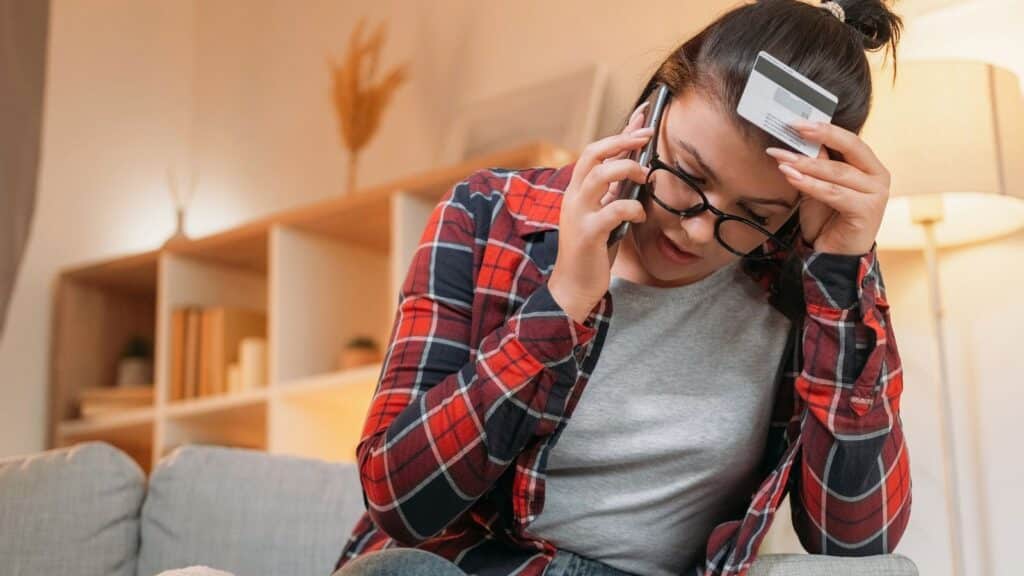When stress builds, many people reach for something that gives instant comfort. For some, that means spending money. A quick purchase or meal delivery can offer a short break from worry, but the calm fades fast. The link between anxiety and overspending runs deeper than most realize, and recognizing it is the first step toward breaking the cycle.
A Temporary Escape
Anxiety creates tension that people naturally want to release. Spending provides a distraction and gives a short burst of control or excitement. Clicking “buy now” feels productive and rewarding, even if it adds financial pressure later. This emotional reward loop is one reason anxious spending is so common.
💸 Take Back Control of Your Finances in 2025 💸
Get Instant Access to our free mini course
5 DAYS TO A BETTER BUDGET
The Illusion of Control

When life feels uncertain, spending can feel like a small way to take control. Buying something new gives an instant sense of stability or progress, even if it doesn’t solve the problem. It’s a coping mechanism that offers structure when everything else feels unpredictable.
Stress and Decision Fatigue
Anxiety wears down mental energy, making it harder to make rational choices. After long days filled with stress, people are more likely to overspend on convenience—ordering food instead of cooking, or buying things they don’t need. Overspending becomes a way to avoid one more decision.
Social Media Pressure
Constant exposure to “perfect” lives online adds more anxiety. Seeing others travel, shop, and show off new purchases makes people feel behind. That pressure often leads to spending as a way to keep up or feel included, even when finances are tight.
Overspending Fuels More Anxiety

Ironically, the short-term comfort of spending usually leads to long-term stress. Credit card bills, shrinking savings, and guilt over impulsive buys can create even more anxiety. The cycle repeats: stress triggers spending, and spending triggers more stress. Breaking that pattern starts with awareness.
Healthier Ways to Cope
Instead of shopping for comfort, focus on habits that truly reduce anxiety. Exercise, mindfulness, journaling, or talking to a friend offer real emotional release without the financial fallout. Building small, healthy routines gives you the same sense of control that overspending pretends to provide.
Why Awareness Is Key
Recognizing the link between anxiety and spending isn’t about shame—it’s about understanding yourself better. Once you see how your emotions influence money choices, you can pause before buying and ask whether it’s truly helping. Awareness turns impulsive habits into intentional actions, giving you back both financial and emotional balance.
Like our content? Follow us for more!
The article The Strange Link Between Anxiety and Overspending first appeared on Cents + Purpose.



